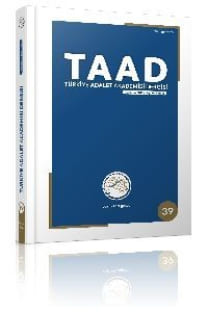Ontolojik doğal hukuk anlayışına iki farklı örnek: Stoa ve hıristiyan doğal hukuk öğretileri
Doğal (tabii) hukuk adından anlaşılacağı üzere insanın insan olma hasebiyle kazanmış olduğu temel hakları içine alan bir adlandırmadır. Stoa devlet felsefesi de temelde ahlak felsefesine dayanır. Evrenin külli ruhuyla insan ruhu arasında özdeşlik kuran Stoalılar, bu düşüncenin doğal bir sonucu olarak kâinatı bir devlete (polis) benzetip, bütün insanları da bu devletin doğal vatandaşları olarak görürler. Platon ve Aristo’da geçerli olan toplumsal sınıf farklılıkları ile insanların doğaları gereği hür ve köle olarak ayrılmaları da yine Stoa’nın evrensel doğa felsefesi sayesinde hukuk ve siyaset felsefesinin konusu olmaktan çıkmıştır. Stoa felsefesinin temel tezi olan dünya aklı (logos üniversales) Juhannes incilinin ilk ayetidir. Hristiyanlık Stoa doğal hukuk anlayışını benimseyerek bunu vahiy ile temellendirmeye çalışmıştır. Buna karşın Hristiyanlık Stoa felsefesinin kabul etmediği sınıfsal ayrımı (hür-köle) kabul ederek kölelik kurumunun uzun yıllar yaşamasına zemin hazırlamıştır. Bundan dolayı Hristiyanlığın insan hakları bağlamında (Kilisenin bir kurum olarak) engelleyici bir unsur olarak karşımıza çıktığı söylenebilir. Batı’nın sömürge tarihi bunun en güzel örneğidir.
Two samples for onthological and natural laws: Christain and stoic application of natural laws
Natural laws comprehend essential regulations of human life. Stoics’ idea of government is based on ethics. The Stoics compares human soul to the divine one which comprehends the universe. As such, human government is like the universe and people are natural subjects. Plato and Aristotle argue that class-differences together with slavery and freedom, which distinguishes itself from Stoics’ universal idea of state and laws. The Universal Logic occupies the central place in the Stoic learning. The priority of logos is also the first verse of Johanna- Bible. The Christianity accepts and re-interprets Stoic idea of natural laws based on revelation. However, Christianity, as opposed to Stoics, does not reject the class-differences and allows the practice of slavery. Thus, the Christianity (Church in particular) may be interpreted as suspending the development of universal human rights. European colonialism also justifies the current Christian attitude.
___
- Augustinus; De civitate Dei, überst.v. W. Thimme, eingl.und kom.v.C. Andersen, 3. Baskı, München 1997.
- Cicero; Vom höchsten Gut vom grössten Übel (Hg.O. Büchler), Bremen 1957.
- Cicero; De Legibus, dt. Über die Gesetze, hg. Und überst. V.E. Baader, Reinbeck 1969.
- Epiktetos; Teles und Musionus. Wege zum glückseligen Leben, hg. Von W. Capelle, Zürich 1948.
- Forschner, M.; Der stoische Ethik, 2. Baskı, Darmstadt 1995.
- Hurbon,L.; The Church and Afro-American Slavery, in: The Church of Latin America 1492-1992, hg.v.E. Dussel 1992.
- Kant, I.; Reflexionen zur Rechtphilosophie (1799), AA Band XIX, Berlin 1902
- Topakkaya, A.; Hukuk ve Adalet, Yetkin yay., Ankara 2010.
- Topakkaya, A.; “Stoa Etiğinin Temel Kavramları“, Felsefe Dünyası, 49 (2009/1), 56-69.
- Von Arnim, J.; Stoicorum Vaterum Fragmenta, Bd. XII, Paris 1964.
- Von Aquin, T.; Recht und Gerechtigkeit: Theologische Summe I-II, Fragen 57-59, übers. V.J.F.Groner, kom. V. A.F.Utz, Bonn 1987
- ISSN: 1309-6826
- Başlangıç: 2010
- Yayıncı: Türkiye Adalet Akademisi
Sayıdaki Diğer Makaleler
6356 Sayılı sendikalar ve Toplu iş sözleşmesi Kanununda sendikaların kuruluş esasları
Hukuksal açıdan kamu alacağı kavramı
Marka tescilinde kazanılmış ayırt edicilik özelliği
Danıştay kararları ışığında hidroelektrik santraller
Türk hukukunda grev hakkı ve uluslararası belgelerde görünümü
İnsan hakları Avrupa mahkemesi kararları ışığında vergi yargılamasında mülkiyet hakkı
Avrupa birliği yargılama hukukunda ara önlemler (ihtiyati tedbirler)
Ontolojik doğal hukuk anlayışına iki farklı örnek: Stoa ve hıristiyan doğal hukuk öğretileri
